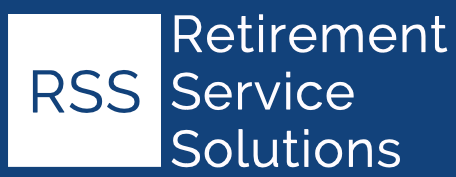Our Retirement Insights and Tips to Help You Stay Informed
How do I choose between Original Medicare and Medicare Advantage?
The choice between Original Medicare (Parts A & B) and Medicare Advantage (Part C) depends on individual healthcare needs, preferences, and budget. Original Medicare offers more flexibility in choosing healthcare providers while Medicare Advantage plans often include additional benefits such as prescription drug coverage, vision, hearing and dental. Advantage Plans typically have a limited network of providers and may have lower out-of-pocket costs.
Can I change my Medicare coverage?
During certain enrollment periods you can change your Medicare coverage. For example, each year during the Annual Enrollment Period (AEP) from October 15 to December 7, you can switch between Original Medicare and Medicare Advantage, change Medicare Advantage plans, or join/switch/drop a Part D prescription drug plan. These changes are effective January 1.
It’s important to note that with the exception of a few situations, Medigap policies will ask health questions before considering you for coverage.
Can I keep my current doctor if I enroll in Medicare?
With Original Medicare, you can see any doctor or healthcare provider who accepts Medicare patients. However, if you choose a Medicare Advantage plan, your choice of providers may be limited to those in the plan's network. Some Medicare Advantage plans offer out-of-network coverage with higher costs.
Does Medicare cover vision, hearing and dental?
Original Medicare typically does not cover routine vision, hearing and dental services such as eye exams, glasses, hearing aids or dental cleanings. Some Medicare Advantage plans may offer some of these benefits but coverage varies by plan. Stand-alone dental, vision and hearing plans are available for purchase.
Does Medicare cover long-term care?
Original Medicare generally does not cover long-term care services like custodial care in a nursing home or assisted living facility. However, it may cover limited stays in a skilled nursing facility under certain conditions such as after a hospital stay.
What is the Medicare Part D "donut hole" and how does it work?
The Medicare Part D coverage gap, often referred to as the "donut hole," is a temporary limit on what your Part D prescription drug plan will pay for covered medications. Once the retail costs of your prescriptions have hit a certain amount, you'll enter the coverage gap. During this phase you'll pay a higher percentage of the costs for your medications. There is a final catastrophic coverage level once you've spent a certain amount out of pocket. During this last phase, you’ll pay a small coinsurance or copayment for the rest of the calendar year.
Does Medicare have a family plan?
Medicare does not offer a family plan. Each individual enrolls in Medicare separately based on their eligibility criteria. Coverage is based on individual enrollment rather than a family unit.
Do I need to sign up for Medicare if I'm still working and have employer-sponsored health insurance?
If you are still working and have creditable health insurance through your employer or union, you may have the option to delay enrolling in Medicare without a penalty. However, it's essential to understand how your current coverage coordinates with Medicare. Your HR department is the best resource to determine if your current coverage is creditable and how it will coordinate with Medicare.
Can I have an Health Savings Account (HSA) while on Medicare?
Yes, you can keep your HSA if the account was established prior to enrolling in Medicare. You can withdraw money from your HSA to help pay your share of medical expenses like deductibles, coinsurance and copayments. If you use the account for qualified medical expenses, it will continue to be tax-free.
When should I stop HSA contributions before applying for Medicare?
If you are applying for Medicare after the month you turned 65, to avoid a tax penalty, you and your employer should stop contributing to your HSA 6 months before you apply for Medicare. Medicare Part A has up to a 6-month retroactive start date. If your Medicare Part A coverage overlaps when you or your employer made contributions, you’ll have to pay a tax penalty because you're not eligible to make HSA contributions while on Medicare.
Can I get help paying for my Medicare costs if I have limited income and resources?
There are some programs available to help people with limited income and resources pay for Medicare costs. Such programs include the Medicare Savings Program (MSP), Extra Help (also known as the Low-Income Subsidy), and state Pharmaceutical Assistance Programs (SPAPs). These programs can help pay for premiums, deductibles, coinsurance, and copayments associated with Medicare. Eligibility requirements vary by state, but generally, you must have income and resources below certain limits to qualify. Contact your State Medical Assistance (Medicaid) office for more information and to apply.
How do I appeal a Medicare decision?
If you disagree with a decision made by Medicare, your Medicare Advantage plan or prescription drug plan, you have the right to appeal. The appeals process has multiple levels and you must follow the specific instructions provided with the decision letter you receive. You can also get help with your appeal from your State Health Insurance Assistance Program (SHIP) or the Medicare Rights Center.
Learn More Today!
To learn more or for questions about Medicare and planning for retirement, call to speak with our team at
715-379-3778 in Eau Claire, WI.
